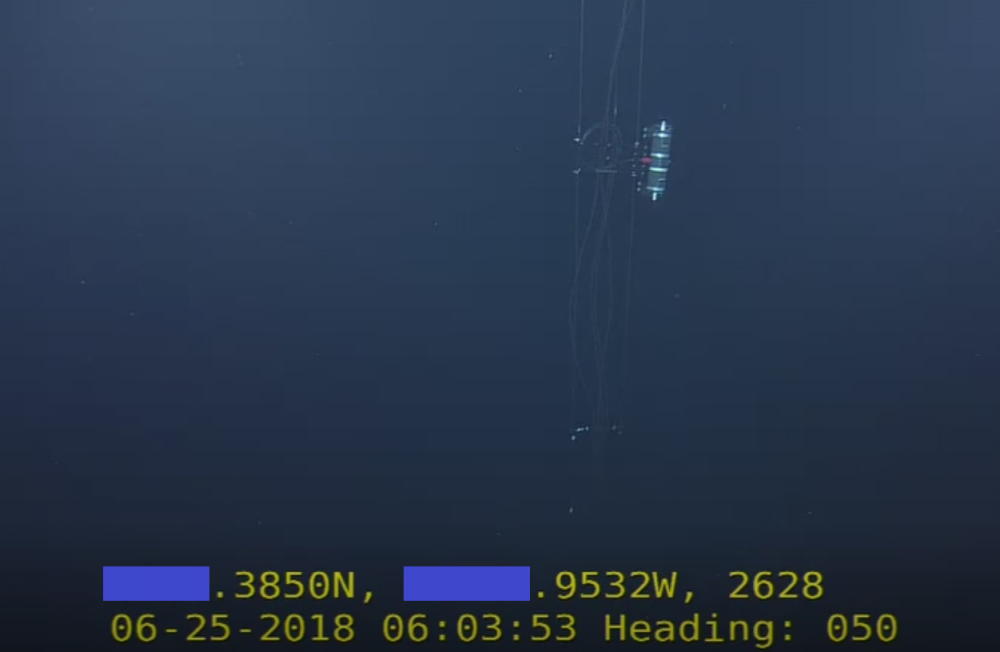Search the Community
Showing results for tags 'odroidc2'.
-
Hi, I am trying to get the official Hardkernel RTC board working. This board requires the driver module "rtc-pcf8563.ko" which is not included in the image by default. So I went through the kernel compiling tutorial, to add this module to my "own" kernel, and copy it over to my main system. First problem: the kernel version was different: main system is at version 4.18.8, while the module was compiled for 4.18.20. I could fix this by myself be defining the KERNELBRANCH='tag:v4.18.8'. Second problem: the "linux family" has changed. My main system is at Armbian version 5.60 for family "odroidc2". The driver module was compiled for "meson64". Until now, I could not fix this. So when I try to load this module, this fails with "Exec format error". So basically three questions come to my mind: What can I do to fix the problem with the different linux families by myself? Is there another way to compile just a single driver module for a specific kernel version for a specific board/linux family? Or is this just the way to go to compile "everything at once"? What about adding the driver module for the PCF8563 to the kernel by default? Greetings, Jojo
-
Hi all, I'm new to Linux and trying to set up a music server using my Odroid C2/Armbian/Cantata/MPD/HDMI sound. Got Armbian 5.60 (Stretch) 4.18.8 installed. Cantata sees the small test music library I set up on the C2 and appears to play tracks as the progress bar moves. I get no sound from the C2 connected HDMI monitor. (for initial testing only, i2s + DAC/Amp later). I tried the same set up using the Odroid Ubuntu/Mate desktop image a few days back and it worked straight out of the box. My suspicion is that the audio output settings in the mpd.conf are not correct (mpd 0.19.21). For HDMI sound output, does my version of Armbian use Pulse Audio or Alsa ? Could you give me some pointers as to what the audio output entries should be for MPD to give HDMI sound output?
-
I used a stable Armbian Image (Armbian Stretch mainline kernel 4.18.y) for OdroidC2. The OS booted up normally but the USB hubs didn't detect the connected peripherals. The output of `lsusb` didn't show any of the connected peripherals. Thanks Sumit
-
I think it would make sense to rename the forum section here from "Amlogic S905(x)" to "Amlogic". It would make much more sense for me to talk here for example about the Armbian port of the Odroid C0/C1/C1+ (Amlogic S805) then in any other forum section.
-
2 changes are in queue on my workstation, one is u-boot 2018.11, the other is updating the Dev patchset and beginning to iron out 4.19 Kernel. The first I honestly don't see any issues with moving forward, but want people to know about it, the second is a bit of a hairball and I'll need some help with debugging, and in fixing. Detail of changes: U-boot: Currently Meson64 and Odroid C2 are using 2018.05 and 2018.07, respectively. I will be moving all to 2018.11, and eliminating the "specialness" of the Odroid C2 in our build system, so Meson64 will be inheriting the C2 boot script under the "Meson64 name, it will no longer have its own u-boot patch folder/etc. The board will finally be fully integrated into the Meson64 configuration, although it will still have the special Odroid firmware blob (all Amlogic SoC's have their own blobs, so no special changes need made to allow for the C2 to have a different one than the K2) Current Concerns: packaging scripts on 4.14 kernel are not creating a symlinked named "Image" for the updated boot script. I didn't consider that and only caught it today. U-boot is obviously unimpressed. Kernel 4.19: This will eventually become the "Default" kernel, once it has been debugged and proven out, as Amlogic Mainline kernels can now be easily patched with full video decoder support (already done), and Mali support is available (I need to finish integrating that, later date) Current concerns: -HDMI displays seem to be a sore spot, I have 1 that works flawlessly (hilariously a 7" waveshare-like HDMI), while the other needs to be plugged in after boot to work, and an HDMI-DVI adapter one is nonfunctional. (it seems to think it's attached, but no image) - I am getting a million "failed to change cpu frequency: -5" errors again. The clock marked as critical fix is in there, needs verified as it looks different than the old one. - I had to disable CEC entirely to get the system to boot with a display attached, it would fault, reboot, fault, etc. Plugging in a display after boot yielded an oops. No CEC = that problem is gone. Tagging @Neil Armstrong, for tracking if interested/have ideas. I'm using Neil's always helpful meta-meson patchset, these were squirreled away in "next" so I assume they are not complete/some WIP, so this can be some good feedback/etc. No one can break things like an end user.
-
This week we discontinued the default 3.x kernel for the Odroid C2, and are working on the 4.18/4.19 kernels. A few odds and ends have come up, the biggest one appears to be the gpio-hog in the C2 device tree somehow not working, causing the USB hub on the board to never be powered on. root@odroidc2:/sys/class/gpio# cat /sys/kernel/debug/gpio gpiochip1: GPIOs 378-496, parent: platform/c8834000.periphs:pinctrl@4b0, periphs-banks: gpio-392 ( |mdio-reset ) out hi gpio-407 ( |reset ) out hi gpio-422 ( |cd ) in lo gpio-465 ( |TFLASH_VDD ) out hi gpiochip0: GPIOs 497-511, parent: platform/c8100000.bus:pinctrl@14, aobus-banks: gpio-500 ( |TF_IO ) out lo gpio-501 ( |usb-hub-reset ) out hi gpio-502 ( |USB_OTG_PWR ) out hi gpio-510 ( |c2:blue:alive ) out lo The hog claims it is there, but I get no power to the port. The other is the HDMI output becoming extremely fussy about the sort of monitor it's been given. [update] On the NanoPi K2 I actually get a crash on boot with my HDMI --> DVI adapter monitor. With both monitors, if plugged in after boot, desktop displays (on C2 only the pure HDMI monitor will display at all), but a fault occurs: FYI @Neil Armstrong
-
Hi guys, I just recompiled my patches from old 2015 Uboot to the 2018 version, allowing setting the baud rate in Uboot (for accessing it by 9600 8N1), and saving envs in eMMC. First one works, I can switch easily baudrates now, but "saveenv" fails, spitting out a lot of error messages: => saveenv Saving Environment to EXT4... Card did not respond to voltage select! ** Bad device mmc 0 ** Failed (1) I also see that apparently the settings are being loaded from a wrong partition: U-Boot 2018.07-armbian (Oct 28 2018 - 10:43:58 +0100) odroid-c2 DRAM: 2 GiB MMC: mmc@72000: 0, mmc@74000: 1 Loading Environment from EXT4... Card did not respond to voltage select! ** Bad device mmc 0 ** Failed (-5) In: serial@4c0 Out: serial@4c0 Err: serial@4c0 Net: eth0: ethernet@c9410000 Hit any key to stop autoboot: 0 Any ideas on that? Maybe eMMC disk layout changed? Any help is appreciated (if you need patches, I can post them here). Michael
-
Hello, does anybody run above configuration successfully? If yes, what are the steps to make this happen? I did this: sudo apt install xorgxrdp xrdp But this is the result: xrdp (0.9.1-9+deb9u3) wird eingerichtet ... Generating 2048 bit rsa key... ssl_gen_key_xrdp1 ok saving to /etc/xrdp/rsakeys.ini Created symlink /etc/systemd/system/multi-user.target.wants/xrdp-sesman.service -> /lib/systemd/system/xrdp-sesman.service. Created symlink /etc/systemd/system/multi-user.target.wants/xrdp.service -> /lib/systemd/system/xrdp.service. A dependency job for xrdp.service failed. See 'journalctl -xe' for details. invoke-rc.d: initscript xrdp, action "start" failed. * xrdp.service - xrdp daemon Loaded: loaded (/lib/systemd/system/xrdp.service; enabled; vendor preset: enabled) Active: inactive (dead) Docs: man:xrdp(8) man:xrdp.ini(5) Okt 25 17:19:24 oc2-e1 systemd[1]: Dependency failed for xrdp daemon. Okt 25 17:19:24 oc2-e1 systemd[1]: xrdp.service: Job xrdp.service/start failed with result 'dependency'. dpkg: Fehler beim Bearbeiten des Paketes xrdp (--configure): Unterprozess installiertes post-installation-Skript gab den Fehlerwert 1 zur?ck Trigger f?r systemd (232-25+deb9u4) werden verarbeitet ... Trigger f?r man-db (2.7.6.1-2) werden verarbeitet ... xorgxrdp (0.9.1-9+deb9u3) wird eingerichtet ... Trigger f?r libc-bin (2.24-11+deb9u3) werden verarbeitet ... Fehler traten auf beim Bearbeiten von: xrdp E: Sub-process /usr/bin/dpkg returned an error code (1) Despite quite some time spent I have no glue, what 'dependency' might be missing. Appreciate any help. Hans
-
hi dear all i am MS student and want to make my own development board for S905. if i purchase components from market and make a pcb then is it work? any one can answer my question?
-
Hi all am trying to make a router out of my odroid c2 using the mainline kernel but am trying to configure mini jumbo frames to support my PPPoE on a FTTP line but am getting errors from the kernel when attempting to enable the 1508MTU needed to support it. my question is do these adaptors support jumbo frames on any kernel or is it just the mainline kernel not supporting them.
-
Odroid C2: next and dev kernels do recognize USB hard-drives The stable kernel does. Kernel configuration issue?
-
Hi, I´d like to use the GPIO PINs on my Odriod C2 with the mainline kernel 4.18. I tried to install the User Space IO, which seems to be the right tool to help me with the task. Unfortunately I had no luck trying to install it on my own. Hopefully we can install it together and get the GPIOs to do their job. It says "User space devices are exposed through /dev or /sys. Verify the device is showing up prior to trying demo programs." That is what is shown in this directory's: Picture, are devices installed properly or do I have to configure the C2 to start with User Space IO? That happens if I try to run the example code to access the GPIO or the SPI interface: Picture2 Can someone help me with that? Thank you! Nik
-
Is this https://forum.openmediavault.org/index.php/Thread/24299 a known issue with 5.60? In https://github.com/armbian/testings it's written that 'USB hot plugging' doesn't work which is something I'm fine with. But what does 'networking sometimes doesn't work' means exactly? @Igor since I've seen you submitted the test report. What does that mean wrt networking? Isn't the next branch meant as a 'stable' branch where basic functionality has to work flawlessly? Did networking work prior to 5.60 release?
-
What would cause the following dialog to show up when running a binary? : No such file or directory When I run strace against the file I get the following for the execution command. execve("./spyserver", ["./spyserver"], [/* 20 vars */]) = -1 ENOENT (No such file or directory)
-
It seems the networking in Armbian 5.59 is messed up. It creates a eth0 adapter (disabled) and Wired network 1 adapter. You can delete these in nmtui, but they always return. I had the same issue with NanoPi Duo using mainline Stable. I can get it to work a bit using armbian-config, removing all interfaces and configuring IP, but it gets screwed up again. I cannot trust to run 5.59 headless because I have no way to get into the SBC without hooking video back up.
-
Hi guys, After some time I get enough brave to do apt upgrade on my Odroid C2 (after month or two).. I updated following packages: Start-Date: 2018-08-07 11:09:56 Commandline: apt upgrade Install: html2text:arm64 (1.3.2a-18, automatic), debconf-utils:arm64 (1.5.56+deb8u1, automatic) Upgrade: ncurses-term:arm64 (5.9+20140913-1+deb8u2, 5.9+20140913-1+deb8u3), libtinfo5:arm64 (5.9+20140913-1+deb8u2, 5.9+20140913-1+deb8u3), linux-dtb-odroidc2:arm64 (5.40, 5.54), libncurses5:arm64 (5.9+20140913-1+deb8u2, 5.9+20140913-1+deb8u3), libncursesw5:arm64 (5.9+20140913-1+deb8u2, 5.9+20140913-1+deb8u3), ncurses-bin:arm64 (5.9+20140913-1+deb8u2, 5.9+20140913-1+deb8u3), base-files:arm64 (8+deb8u10, 8+deb8u11), patch:arm64 (2.7.5-1, 2.7.5-1+deb8u1), libldap-2.4-2:arm64 (2.4.40+dfsg-1+deb8u3, 2.4.40+dfsg-1+deb8u4), linux-image-odroidc2:arm64 (5.40, 5.54), armbian-config:arm64 (5.40, 5.54), linux-u-boot-odroidc2-default:arm64 (5.40, 5.49), docker-ce:arm64 (18.05.0~ce~2.1.rc1-0~debian, 18.06.0~ce~2.1.rc1-0~debian), armbian-tools-jessie:arm64 (5.40, 5.44), tzdata:arm64 (2018d-0+deb8u1, 2018e-0+deb8u1), armbian-firmware:arm64 (5.40, 5.45), ncurses-base:arm64 (5.9+20140913-1+deb8u2, 5.9+20140913-1+deb8u3) End-Date: 2018-08-07 11:10:45 After upgrade I am having freeze almost every 12 hours - not able to connect to the odroid via SSH (running headless) and I have to replug power (I am using official power adapter from Odroid via jack). Here is link to logs etc. any ideas what it could be? I will try to set up nmon or zabbix to monitor health of mem / cpu before crash.
-
Hello armbian community, I am coming from the official Hardkernel minimal Ubuntu image to armbian (I need a newer kernel than the 3.16 in Hardkernel images). I'd like a headless setup, so I have downloaded and flashed what is inside Armbian_5.49_Odroidc2_Debian_stretch_next_4.17.3.7z. So far so good, the image boots to login prompt. However when I want to log in, the characters typed do not appear on the screen. I have tried several keyboards (one of them being the same keyboard I'm typing this post on so I know it works), both wired and wireless, connected directly or via a USB hub, still nothing. I've also tried flashing the desktop image from Armbian_5.49_Odroidc2_Debian_stretch_next_4.17.3_desktop.7z with the same result (a desktop does not come up, only CLI login, but that would not be an issue). I have also tried boot the C2, wait a few minutes and then just blindly type root<enter>1234<enter> - nothing happens. I went back to the Hardkernel image - all my keyboards work, no problem there. Any idea what to try or what could be wrong with my setup? Thank you!
-
Hi guys, some months ago I implemented an Odroid C2 as readout controller for a scientific instrument. Lot of people were kind and helped me with some problems with Armbian, especially eMMC and PWM. Today, finally, we managed to have our instrument (two strings with several Odroid C2 and other stuff) deployed. It is sitting now at 2628m depth in the Pacific Ocean, and will go operational the next days. Here we are... I think I can announce the deepest Odroid so far (cry loud if I'm wrong :) ) In the picture you just can see the Titanium housing with two glass covers attached to the string. Again, thanks for the fish :) Michael
-
Dear all, I have a problem related to my freshly installed Armbian 5.44 on Odroid C2. Everything is working fine except my external HDD is not recognized anymore. On v5.33 all was working fine. Disc is 500 GB, ext4 formatted. I'm using original power supply from Odroid C2 and haven't got power issues so far. Here is output of armbianmonitor -u : http://ix.io/1bZw Thanks in advance! ;-)
-
I have created a branch for amlogic device mainline u-boot, I have successfully booted le potato now, it took some small adjustments to support the 2015 boot script. Anyone wishing to try this use LIB_TAG="meson64-uboot" Next steps: use a proper boot script to take advantage of armbianEnv.txt and bring Le Potato to modernity. using C2 as pattern bring up mainline support for K2
-
Hi, with my Odroid C2 I experience a strange behaviour regarding Armbian Updates. Initially Armbian_5.38_Odroidc2_Debian_jessie_default_3.14.79 was installed, after installation I did an upgrade to Debian Stretch. Meanwhile a new Armbian version v5.44 / v5.45 with a newer Kernel is available for Odroid C2 devices. If I do "apt update" and "apt upgrade", a newer version isn't visible or would be installed? The system is stuck on v5.38 with Kernel 3.14.79: " Welcome to ARMBIAN 5.38 stable Debian GNU/Linux 9 (stretch) 3.14.79-odroidc2 Linux lx 3.14.79-odroidc2 #14 SMP PREEMPT Thu Jan 25 05:46:07 CET 2018 aarch64 System load: 0.39 0.28 0.30 Up time: 1 day Memory usage: 19 % of 1975MB IP: 172.x.x.x CPU temp: 57°C Usage of /: 51% of 7.0G " When I do "dpkg -l | grep armbian", I see the following: " ii armbian-config 5.45 all Armbian configuration utility ii armbian-firmware-full 5.38 all Linux firmware-full ii armbian-tools-stretch 5.44 arm64 Armbian tools, Cubie bt utils ii hostapd 2:2.6-4~armbian5.38+1 arm64 IEEE 802.11 AP and IEEE 802.1X/WPA/WPA2/EAP Authenticator ii sunxi-tools 1.4.2-2~armbian5.38+1 arm64 tools for working with Allwinner (sunxi) ARM processors " Has anyone an idea, what happens here? Many thanks, Matt
-
Odroid C2 Armbian 5.44 Ubuntu- Bionic XFCE 4.12/ - 1. system lost eth0 connection after 5 minutes work ( DHCP or Static number IP ) 2. sometimes not reboot properly - i have to unconnected from power
-
I installed ARMBIAN 5.44 testing Ubuntu 18.04 LTS 4.14.40-odroidc2 on my C2 and it is working fine at this time, but it hangs with the command "shutdown -r now" - I have to power off/on. Now I did get the advice to update to U-Boot V2018.03 On my C2 dpkg does show me as actual installed: linux-u-boot-odroidc2-next 5.44 arm64 Uboot loader 2017.11 Via "apt-cache search" or at http://apt.armbian.com/pool/main/l/linux-u-boot-odroidc2-next/ I couldnt find nothing newer than the installed version or linux-u-boot-next-odroidc2_5.38_arm64.deb 25-Jan-2018 07:48 206K In /etc/apt/sources.list.d/armbian.list I got as the only armbian-source: deb http://apt.armbian.com bionic main bionic-utils bionic-desktop So could please point me anyone the the v2018.03 U-boot as .deb or how could I compile it for myself? As Info I only did find that: https://github.com/armbian/build/pull/913 Thanks in advance
-
TL;DR: the following is a simple summary of the issue: Amlogic SoCs contain an own embedded microcontroller (Cortex-M3) used for controlling power and clocks A proprietary and closed source firmware is loaded on the M3 at boot. This stuff is contained in the bl30.bin blob we have to include This firmware controls the real clockspeeds, ignores what the cpufreq framework running in the Linux kernel wants and even reports back bogus clockspeeds (the kernel wants to set 1512 MHz, the M3 ignores this and sets 1416 MHz instead but the code returns faked 1512 MHz) Various tests showed that this is not related to thermal protection but just to $something we currently don't understand and out of our control Hardkernel are the only ones who managed to get a bl30.bin blob from Amlogic for their ODROID-C2 that does not cheat on us but honours the cpufreq framework, sets the wanted clockspeeds and also returns real and not faked cpufreq values. On all other Amlogic SBC situation is different Talking about 'not entirely honest' when it's about bold lies is funny It's some proprietary crap that controls DVFS on Amlogic SoCs (a bl30.bin BLOB loading some firmware on the embedded Cortex-M3 which controls DVFS/cpufreq on its own) and Hardkernel is the only vendor that got this BLOB from Amlogic in a way where the installation does not cheat on you. In case the BLOB does also DRAM initialization (most likely) it should be hard to exchange it between boards. https://forum.armbian.com/topic/2138-armbian-for-amlogic-s912/?do=findComment&comment=43338 (S912 and S905X are both known to cheat on the Linux kernel. The cpufreq values are all faked. Most probably this does also apply to all S905 devices except ODROID-C2 since Hardkernel managed to get a fixed BLOB from Amlogic)
-
Hi guys, after some interesting weeks, I could successfully install eight Odroid C2 together with dedicated FPGA hardware now, and prepare them now for deep sea operation. Just wanted to express a big "THANK YOU" to all here in the forum which were involved in helping me to get the beast working. The boards operate now with patches inside Uboot (serial console 9600 8N1) and several small patches inside the kernel (device tree, PWM, ADCs, 1Wire), and a patch inside the rt8152 driver to switch off the LEDs in the USB ethernet dongle (PMTs don't like such bright light usually). 128GB eMMCs are working fine, thanks to the speed patch The Armbian image does a great job, it's a pleasure to work with. At the moment I run it headless over some DSL connection, with a SSH tunnel and TigerVNC to remotely operate it and test under hard conditions Again, thanks to all persons involved. BTW, I'm open for ideas on how to save power on C2 during operation, as well as how to read CPU temperature remotely - we have 22W max power dissipation inside the Titanium shell... every Watt counts. BTW2, how can I take the kernel image out of updates? I want to use apt-get for normal packages, but hands off the kernel So far, Michael




